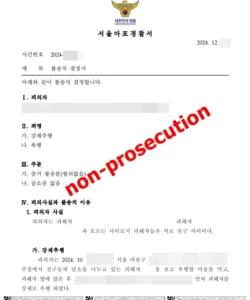Understanding Divorce in Korea: A Comprehensive Guide
Table of Contents
Navigating the Labyrinth of Uncontested and Contested Divorce
acing a divorce can be a challenging ordeal. But knowing your rights and understanding the law can turn the tide in your favor. Let’s explore the landscape of divorce in Korea.
Divorce is an official or legal process to end a marriage. It maybe one of the hardest decisions that you make in your entire life. There are 3 types of divorce in Korea. One is uncontested divorce which is also called ‘Divorce by Agreement’. Another is contested divorce as it’s known, Divorce lawsuit. The 3rd is ‘Mediation Divorce’. We’ll introduce the difference between the first and second in this article.
The definition of uncontested divorce in Korea can be found in Korea’s Civil Act Article 834. It stipulates that husband and wife may get a divorce by agreement. And contested divorce means the situation when one spouse asserts the spouse wishes not to get a divorce or one spouse is not certain of the intent of the other spouse or mainly has a disagreement with the matrimonial issues-such as, the cause of the breakdown of the marriage, child custody, child support, division of the property, etc.
Korean Civil Act Article 840 stipulates 6 cases when you can apply for a contested divorce.

Civil Act Article 840
Either husband or wife may apply to the Family Court for a divorce in each case of the following subparagraphs: <Amended on Jan. 13, 1990>
1. If the other spouse has committed an act of unchastity;
2. If one spouse has been maliciously deserted by the other spouse;
3. If one spouse has been extremely maltreated by the other spouse or his or her lineal ascendants;
4. If one spouse’s lineal ascendant has been extremely maltreated by the other spouse;
5. If the death or life of the other spouse has been unknown for three years;
6. If there exists any other serious cause for making it difficult to continue the marriage.
The rules apply to marriages between two Korean nationals, between a Korean and a foreign national, and even between two foreign nationals if one, at least, resides in Korea or, has (a) reasonable connections to Korea enough to have a divorce.
When you’re looking for getting a divorce in Korea. There are significant differences between an uncontested divorce and a contested divorce.
1) Estimated Time Period
If you want an uncontested divorce, the divorce decree can be obtained within 30 days without a child/children or up to 4 months with a child/children from the filing of the divorce. On the other hand, it is difficult to predict the length of time of the issuance of the contested divorce decree.
2) Legal Representation
To get an uncontested divorce, representation by a lawyer is not necessary. But if you are represented by lawyers, you are not required to appear before the court, prepare the needed law forms by yourself, or handle all the details. On the other hand, to get a contested divorce, representation by a lawyer is practically necessary to do the drafting of documents and participation in hearings.
Lee & Lee legal professionals will provide high-quality representation by handling both contested and uncontested divorces in Korea.
Check the details of Mediation
Law Firm LEE&LEE’s english speaking lawyers provide clients with the highest quality representation
SEOUL, Gangnam Office (Korea) | Kristen Y. LEE
2F, 27-6, 162 Gangnam-daero, Gangnam-gu, Seoul, Republic of Korea



